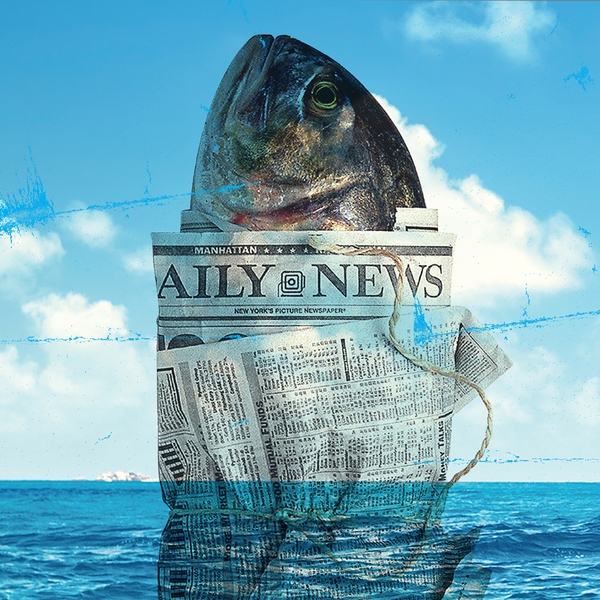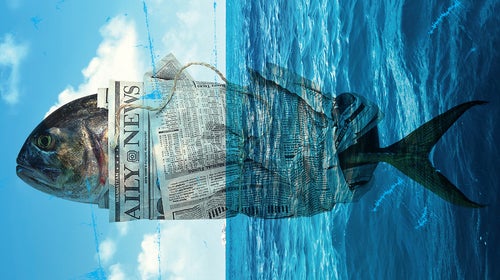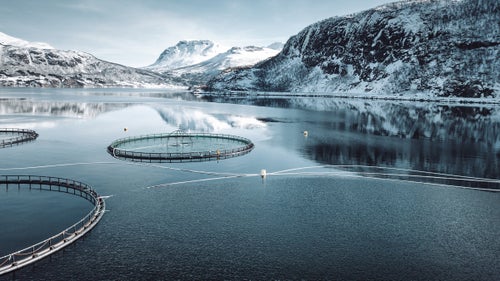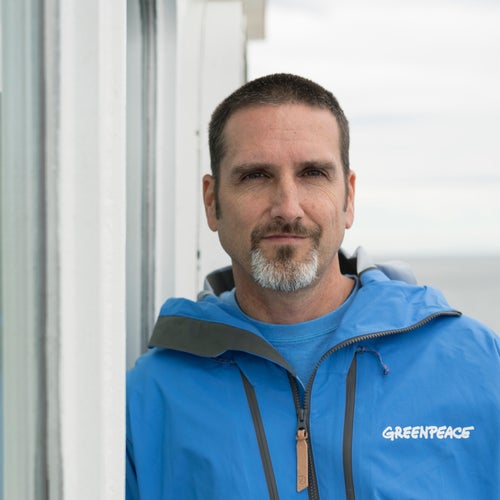The New Wave of Fishless Fish Is Here
Food scientists and marketers are creating healthy, plant-based, imitation tuna, crab, and shrimp that look and taste like the real thing. Better yet, switching to faux seafood will help curb our reliance on an international fishing industry that has become an environmental and human-rights disaster.
New perk: Easily find new routes and hidden gems, upcoming running events, and more near you. Your weekly Local Running Newsletter has everything you need to lace up! .
The year 2020 has not been good to many things, but it has been very, very good to the tuna melt. As the world got weird and we sheltered at home, many of us hankered for the familiar, the stable, the uncool. And there was the tuna melt waiting for us, as uncool as ever.
References to the sandwich spiked on Reddit. New recipes (more or less indistinguishable from the old recipes) flowed onto the internet.
I, too, felt the allure. So, during the height of the pandemic, breaking away from the monotony of the keyboard, I made myself a lunch of soaring satisfaction: crispy bread and creamy tuna under a warm security blanket of cheese. What made it especially gratifying, however, was that it was the first tuna melt of my life that involved no fish at all. It was made with a new plant-based faux tuna called , and while I can’t exactly say it changed my life, it definitely changed my lunch.
I swore off canned tuna last year, after reading , Ian Urbina’s wrenching account of human-rights abuses in the global fishing industry. For years, my list of morally acceptable seafoods had been narrowing as I learned about the environmental impacts of industrial fishing. Bluefin tuna, of course, went out the window long ago. Then it was Chilean sea bass, swordfish, and farmed salmon. Cod, gone. Shrimp, toast. But I clung to canned tuna, in part because of the convenience. A highly functional shot of protein, shelf-stable and cheap, it seemed morally defensible as long as it sported the logos certifying that it was dolphin-safe and sustainably fished.
But that changed when I plunged into Urbina’s book, the result of more than three years reporting on high-seas crime across 12,000 nautical miles, all five oceans, and 20 smaller seas. He shipped out on roach-infested, barely seaworthy trawlers, chased pirates and poachers, got caught in border wars, and uncovered a grainy cell-phone video of casual assassinations at sea. After all that, Urbina asked, did we really think “that it is possible to fish sustainably, legally, and using workers with contracts, making a livable wage, and still deliver a five-ounce can of skipjack tuna for $2.50 that ends up on the grocery shelf only days after the fish was pulled from the water thousands of miles away”?
Spoiler alert: it’s not. The average can of tuna drags behind it a tangled net of wrecked ecosystems, definned sharks, debt bondage, child labor, human trafficking, physical abuse, and murder. By the time I finished The Outlaw Ocean, I couldn’t open a can of tuna without imagining a trickle of human blood oozing out. And it’s not just tuna. Swordfish, snapper, mahi mahi, mackerel, sardines, squid, and anchovies are all tainted by slavery. So are farmed salmon, farmed shrimp, and cat food, which relies on meal made out of small fish caught in fisheries rife with human suffering.
Many fishing boats are crewed by migrants from poor countries who are desperate for work. The boats can spend years at sea, periodically off-loading their catch to refrigerated mother ships and taking on fresh supplies. Oversight is almost nonexistent. Men are brutal hours in filthy conditions. Beatings are common. So are deaths.
A typical experience is that of Lang Long, a poor Cambodian man Urbina met in Thailand. Long was smuggled to the Thai coast by a trafficker who promised to get him a construction job, but the job never materialized. Instead, Long was sold to a fishing captain for $530, to cover his trafficking debt. Once on the boat, he didn’t see land again for three years.
During that time, Long was beaten regularly, forced to work up to 23 hours a day, and given insufficent food and water. After trying to escape, he was shackled by the neck and chained to the deck whenever his boat approached another ship.
But Long was relatively lucky. He survived, and was returned to land after a Catholic charity paid the boat’s captain $750 for his freedom. Other sea slaves have described sick deckhands being thrown overboard and intransigent ones being locked in the hold, whipped, or beheaded.
All this happens on the untraceable high seas. By the time a tender comes into port, it can carry a vast mix of legally and illegally caught fish. And that’s how a can of tuna gets to your grocery shelf for $2.50.









